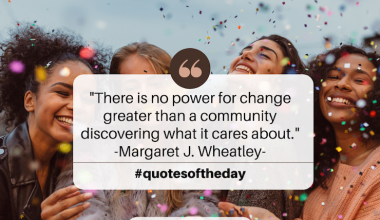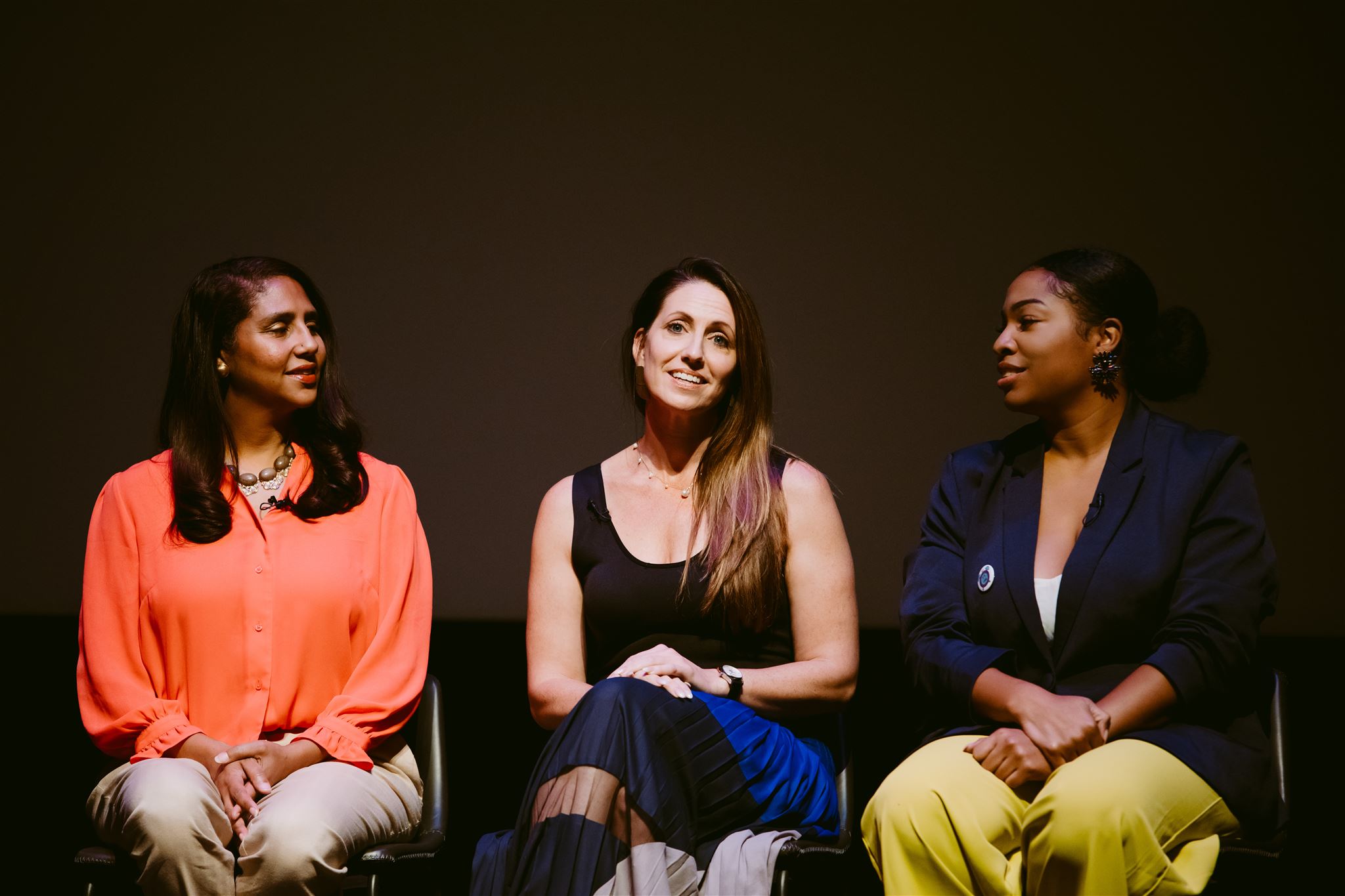by Deborah A. Coviello
Table of Contents
Have you ever met someone who is incredibly talented and excelling in their field yet they are failing to receive the recognition they deserve? Throughout my career, I have seen this happen time and time again. I was curious, what made some individuals shine while others missed their light? I began to research this phenomenon and what I’ve discovered, is that those who understand the importance of effective messaging are much more likely to leave an impact with their work.
“…My first suggestion is to remove “n’t” from your vocabulary. Get rid of thoughts that say, “I can’t, I’m not, I won’t, I never, and I shouldn’t.”
We have all had those moments when we feel on top of our game and can’t wait to share what we’re learning with others. I remember having one particularly exciting month at work and the moment I was able to reveal this new information to my colleagues. I was over the moon, but after my presentation, I heard nothing but crickets- complete silence filled the room. I had been so proud of my work but lost the power behind my information when I failed to connect with my audience.
What I left out of my presentation was the opportunity to engage my audience through discussion and conversation. If you have important information to share, a great statistic on its own isn’t going to leave a lasting impression. What you need to make your message stick is audience participation- meet them where they are and make them feel comfortable asking questions. Because without engagement, your information may reach the audience, but your words and data will be much less likely to shake things up and create real change.
In three simple principles, I want to help you find your voice and impact your world.
Changing Your Language Will Create a Positive Mindset.
My first suggestion is to remove “n’t” from your vocabulary. Get rid of thoughts that say, “I can’t, I’m not, I won’t, I never, and I shouldn’t.”
Think about, or write down, how many times you’ve used negative language today. Now, positively reframe those thoughts. Reimagine those sentences using words such as “I can. I am. I will. I’ll learn. I’ll try.” Positive language moves you away from the limiting beliefs you build for yourself when you live in a negative headspace. When you change your internal speech, you will make more actionable changes.
I’ve seen a dramatic change in a good friend who employed this tip. They had been working in a technical leadership position and were offered an opportunity in technical sales. Their first reaction was, “I can’t apply for that job because I’ve never been in sales.”
After hearing my friend project a negative mindset, I told them to think about it more positively. I suggested changing their thought to, “while sales are new to me, I know from experience that I am a quick learner and have thrived in other challenging situations.”
After taking my advice, my friend applied and received the technical sales position. Following this career change, they were promoted in less than a year. As soon as we can change the words we use about ourselves, our behavior is affected, which in turn changes the impact we have on our environment.
Changing How You Communicate and Create Connections Will Make an Impact
I want to talk to you about messaging, especially in the context of giving presentations. When presenting, remember the importance of your expertise and knowledge, but don’t forget to give your audience context.
What is the risk of not taking this advice? What are the ways your information can impact each individual personally?
Doing this breaks down your information and makes it relatable. You don’t want to sound like a public service announcement; you want to engage your audience. Think about presenting information in the context of risk or opportunity for your audience. Then, once you’ve mentally and emotionally connected with people, propose your solution.
Here is an example of what NOT to do, “Data shows complaints are increasing, and we need to replace our equipment to detect defects before they reach our customers.”
When you present your issue in this manner, responses you are likely to hear are, “we don’t have that in the budget,” “let’s look at that next year,” or, “can we just take that offline?” This happens because you didn’t tell people how to respond to you. Your data may be accurate, but you didn’t make a connection that led to engagement or a solution.
This is the moment subject matter experts lose their confidence. They walk away from situations like these feeling frustrated and become less likely to present again. However, let’s try to reframe this presentation, “data shows customer complaints are increasing, and unless we make changes in our detection equipment, we’re going to lose business and likely incur returns.”
This quick change of phrase gave direction to the dialogue and made those in power appreciate your information. Now that you have their attention, you need to provide a solution, “I propose that we invest in this equipment. Although it may be a $10,000 investment, with the return expense of $5,000 a quarter, this necessary change will pay for itself in only six months.”
Your data has now found context and engaged with its audience. When you speak with your audience in mind, you are much more likely to see results!
Even if you don’t see dramatic results right away, you’ve laid a foundation. You have started a conversation and established yourself as a valuable resource by connecting with your audience.
Now that they understand how your expertise can impact their success, you can expect your work to reach a wider audience and leave a more significant impact.
Build a Feedback Framework that Creates Conversations based on Strength
We need to do a better job at getting the feedback we need to elevate our impact. Society has created a framework where people are afraid of feedback or don’t know how to put it into action properly. However, after a project, if you ask just three simple questions that are answered honestly, you can make huge leaps in your impact.
- What should I continue?
- What should I start?
- What should I change?
Continue, start, and change. These powerful words work to reframe feedback into a positive experience while giving the individual specific points of action.
You should continue with the things presented as strengths, you should start strategies that will elevate your message, and you should change aspects that may be distracting from your value.
Present this framework whenever you are asking for feedback and it will give the individual evaluating you the opportunity to positively impact your message.
How often have you been in a situation where you asked someone for feedback and they said “you’re doing fine,” or “sounds good to me.”
Was that helpful? Probably not, but did you give them the framework to give you positive feedback? If you just asked “how am I doing?” or “how does this sound?” the person you asked probably didn’t know exactly what information you were looking for.
I can think of one situation where I need to give someone working for me genuine, thorough feedback. They had given amazing information, but they wanted to know how they could improve their presentation. When thinking of how I could be the most helpful, I followed the framework of continue, start, and change.
I let them know that they should continue to be thorough in sharing their information and knowledge. Their information is their superpower; people rely on it for key business decisions. Leading with an affirmation led to a positive start to the conversation and built trust as I continued to start. I then told my coworker that they needed to start standing the whole time they delivered content. Even if they were giving a virtual office presentation, standing would bring energy to their words and harness engagement.
Then, before sharing what I thought they should change, I asked if they would be okay with my input in that area. When they agreed, I gave my feedback. I encouraged them to be more intentional about what they were doing with their hands. I let them know that using uncorrelated hand movements could be distracting for their audience and suggested finding something to ground their hands, like holding on to a pen. When I told them this they were grateful to have an actionable piece of advice, and it was taken well as we had already discussed many things that they were doing right. After taking my direction, and reusing this feedback framework, they soon became a sought-out global leader in their field.
And now it’s your turn to take this information and apply it to your own life.
Take negative language out of your internal vocabulary, focus on using language that connects with your audience, and learn how to ask for and respond to feedback in the most productive way. Then, share this wisdom with others and encourage them to gain confidence through these communication strategies. When we share powerful words with those around us, we elevate our community and create a positive impact. By following this advice you have the power to enhance yourself while simultaneously creating positive change in the lives of those around you.

Deb Coviello is an advisor, author, podcast host, and Founder of Illumination Partners. She is a trusted partner to C-Suite Leaders.











